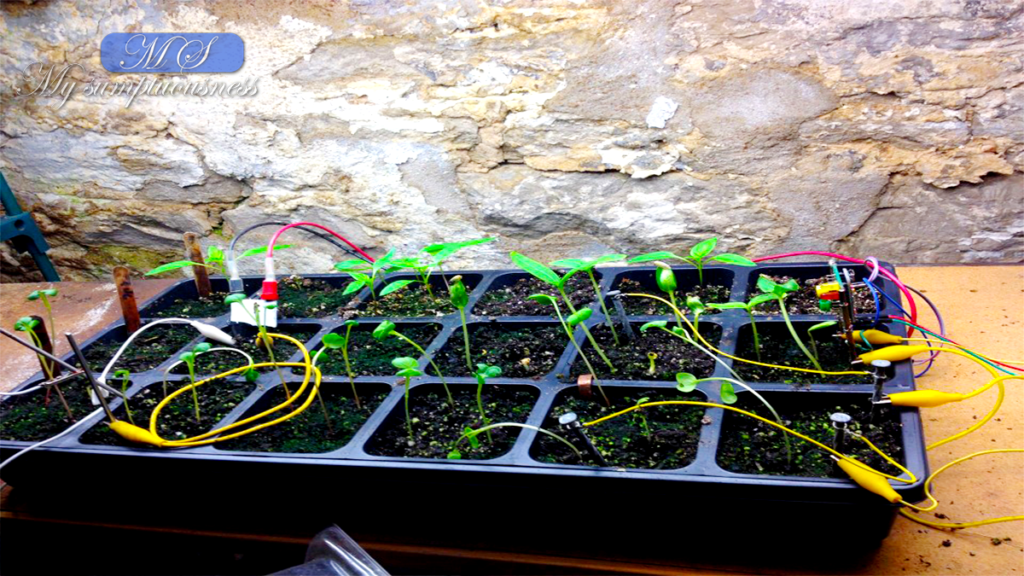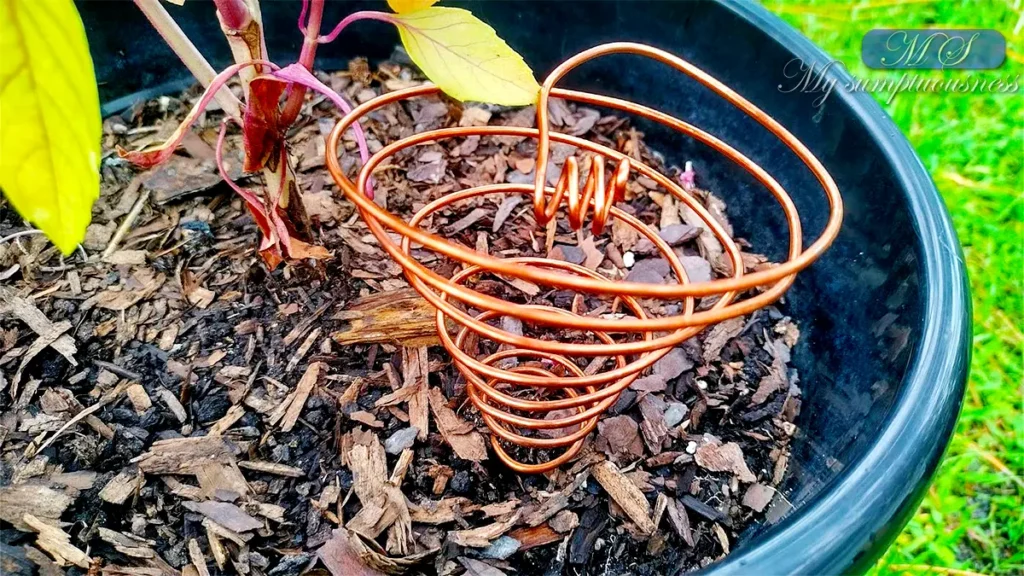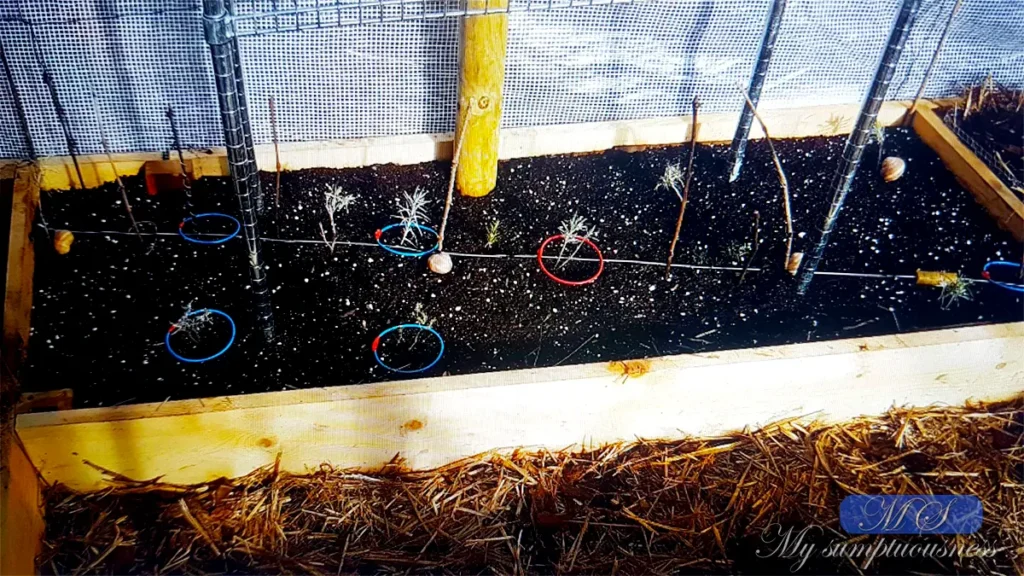Last Updated on 22 August 2023 by mysumptuousness.com
Electroculture: Growing Greener with Electricity
Electroculture is an innovative and sustainable agricultural technique that’s all about using the power of electricity to enhance plant growth and crop yields. It’s like giving nature a little boost with a jolt of energy. Instead of relying solely on traditional methods, electroculture introduces a new approach by applying controlled electric fields to plants and soil.
These electric fields stimulate various physiological and biochemical processes within the plants, leading to improved nutrient absorption, accelerated seed germination, and enhanced resistance to pests and diseases. One of the fantastic advantages of electroculture is its eco-friendliness, as it often reduces the need for synthetic fertilizers and harmful pesticides, promoting a more environmentally friendly way of farming. By harnessing the potential of electro-culture, farmers can increase their harvests while contributing to a more sustainable and greener future for agriculture.
Revolutionizing Agriculture with Electroculture Farming

Electroculture farming is a groundbreaking agricultural methodology changing how we cultivate crops. This innovative approach harnesses the power of electricity to optimize plant growth and yields. Unlike traditional methods, electro-culture farming involves strategically applying controlled electric fields to plants and soil.
These electric fields stimulate crucial biological processes within plants, leading to enhanced nutrient uptake, faster seed sprouting, and increased resilience against pests and diseases. It makes electroculture farming even more appealing to its potential to reduce reliance on synthetic fertilizers and harmful chemicals, promoting a more sustainable and eco-conscious farming system. By adopting electro-culture farming techniques, we can unlock higher productivity while contributing to a greener and more efficient future for agriculture.
Harnessing Nature’s Potential: Electroculture with Copper

Electroculture with copper is a remarkable agricultural practice that taps into the power of this essential metal to revolutionize plant cultivation. This method uses controlled copper electrodes in the soil to generate mild electric currents. These currents stimulate plant growth by encouraging nutrient absorption, root development, and overall vitality. Copper’s natural properties aid in promoting enzymatic processes within plants, leading to improved metabolic functions and better resilience against environmental stressors.
Electroculture with copper also showcases its eco-friendly side by potentially reducing the need for excessive chemical inputs, thus supporting sustainable farming practices. By integrating the benefits of copper and electro culture, farmers can unlock higher crop yields and develop a more efficient and environmentally conscious approach to agriculture.
Essential Equipment for Electroculture Farming

In electro-culture farming, specialized equipment plays a pivotal role in harnessing the power of electricity to enhance plant growth. Critical components of electro-culture equipment include electrodes, generators, and control systems. Electrodes, often made of materials like copper, are strategically placed in the soil to emit controlled electric fields.
Generators provide the necessary electrical energy to create these fields, while advanced control systems regulate the intensity and frequency of the electric currents. Additionally, monitoring tools such as sensors and meters are used to assess the electric field’s impact on plants and soil. These instruments allow farmers to fine-tune the electroculture process and tailor it to specific crops and conditions. As electro culture gains momentum for its sustainable and efficiency-driven benefits, having the right equipment becomes crucial in redefining modern agriculture.
Electroculture Gardening: Energizing Your Green Space
Electroculture gardening introduces an electrifying twist to traditional gardening practices, enhancing how we nurture and cultivate plants. This inventive approach involves applying controlled electric fields to the soil and plants, stimulating various biological processes and encouraging robust growth. Using carefully designed electrodes and generators, electro-culture gardening harnesses electricity’s power to boost nutrient absorption, accelerate seed germination, and fortify plant resistance to pests and diseases. This technique promotes a greener way of gardening, as it can reduce reliance on synthetic fertilizers and harmful chemicals.
With electro-culture gardening, enthusiasts can cultivate healthier, more vibrant plants while contributing to sustainable and eco-conscious gardening practices. Whether nurturing a backyard garden or tending to indoor plants, electro-culture gardening opens up exciting possibilities for reimagining how we interact with nature.
FAQS
Electroculture is an innovative agricultural technique that involves the application of controlled electric fields to plants and soil. Its primary purpose is to enhance plant growth, increase crop yields, and improve agricultural productivity. By stimulating various physiological and biochemical processes within plants, electroculture can lead to better nutrient absorption, faster germination, increased resistance to pests and diseases, and even a potential reduction in synthetic fertilizers and pesticides.
Electro culture is typically accomplished by strategically placing electrodes in the soil and utilizing generators to create controlled electric fields. These electric fields influence the plant’s growth and development positively. Careful management of the electric currents’ intensity, frequency, and duration is crucial to ensure optimal results and minimize potential damaging strikes on the plants.
The term “antenna” in electro culture refers to the electrodes used to generate electric fields. These electrodes can come in various forms, such as metal plates, rods, or wires. Due to its electrical conductivity and availability, copper is commonly used as an electrode material in electro culture. The choice of the antenna depends on factors like the type of plants being cultivated, the soil’s composition, and the specific goals of the electro-culture process.
As mentioned, copper wire is often used as an electrode material in electro culture due to its electrical conductivity. When used correctly, copper wires can facilitate the controlled electric fields that stimulate plant growth. However, excessive copper exposure can harm plants, leading to toxicity. Therefore, proper electrode placement and monitoring are essential to avoid adverse effects.
Antennas used in electro culture need good electrical conductivity, durability, and the ability to create consistent electric fields. They should also be compatible with the soil environment and not introduce harmful elements into the soil.
Yes, antennas used in electroculture are electromagnetic. They work by generating electric fields by applying electric currents, and these fields interact with the plants and soil, influencing their growth and development.
Copper wire is an excellent conductor of electricity, which means it can efficiently transmit electric currents. It doesn’t inherently attract electricity, but its high conductivity makes it a suitable material for carrying electric currents, such as those used in electro-culture setups.